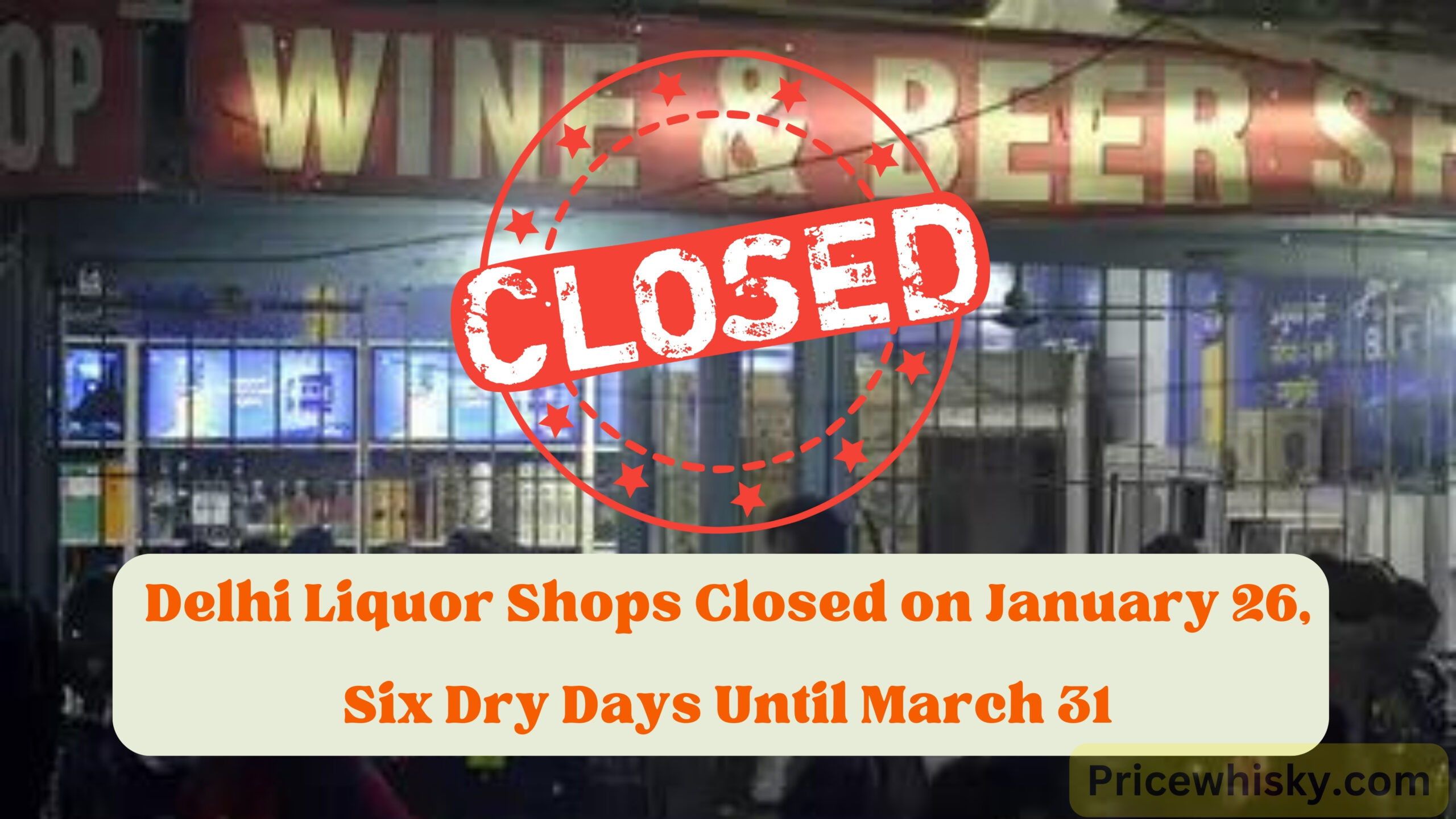Delhi Liquor Shops Closed on January 26: Liquor shops in Delhi are set to remain closed on January 26, marking a significant decision by the government that translates to a total of six dry days up to March 31. This move holds various implications for the public, businesses, and the overall social landscape of the city.
Introduction
In a surprising announcement, the Delhi government declared the closure of liquor shops on January 26, a decision that extends to a total of six dry days until March 31. Understanding the rationale behind such a move and its potential impacts on businesses and the public is crucial.
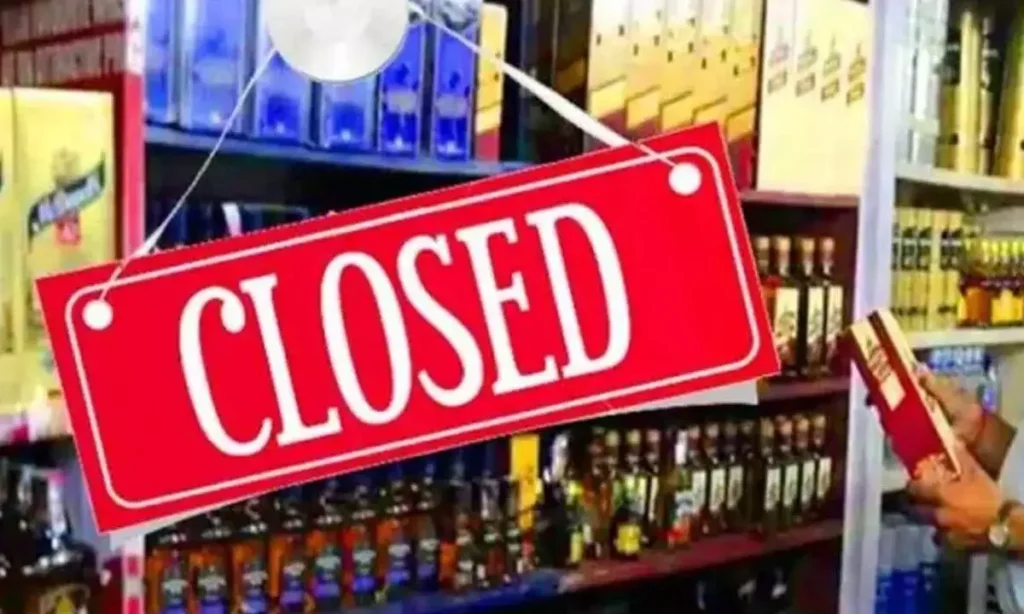
Background
Delhi Liquor Shops Closed on January 26
To comprehend the gravity of this decision, a historical perspective on dry days in Delhi is essential. Previous instances of liquor shop closures, public reactions, and their impact on local businesses provide context to the current situation.
Announcement Details
The official announcement, outlining the specifics of the liquor shop closures and the reasons behind this decision, sheds light on the government’s perspective. Exploring these details can provide valuable insights into the motivations behind such a significant move. [Delhi Liquor Shops Closed on January 26]
Impact on Businesses
Liquor store owners and businesses in the hospitality sector are likely to face economic repercussions. Understanding the effects and public reactions is crucial to gauge the overall impact on the local economy.
- Financial Strain: Liquor store owners may experience a significant decline in revenue during the period of closure, leading to financial strain.
- Hospitality Sector Challenges: Restaurants and bars, heavily reliant on liquor sales, will grapple with reduced customer traffic, affecting their profitability.
- Employee Impact: Reduced business may force businesses to cut hours or lay off staff, impacting the livelihoods of employees in the sector.
- Supply Chain Disruptions: Distributors and suppliers within the liquor industry may face disruptions, affecting the entire supply chain.
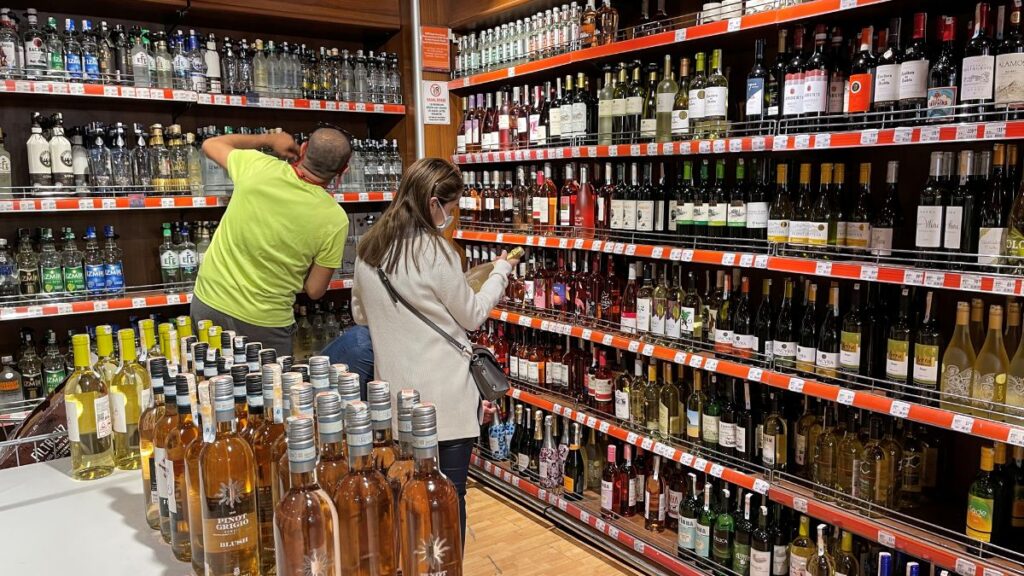
Alternatives for Consumers
Amidst these dry days, consumers need to explore alternative options and plan their purchases responsibly. This section will discuss the choices available to consumers and emphasize the importance of responsible drinking.
- Neighboring Areas: Consumers can explore neighboring areas or districts where liquor shops remain open during these dry days.
- Advance Planning: Planning purchases ahead of time allows consumers to stock up on their preferred beverages before the dry days.
- Non-Alcoholic Alternatives: Embracing non-alcoholic alternatives offers consumers the chance to enjoy social occasions without alcohol.
- DIY Cocktails at Home: Engaging in home mixology allows consumers to create their favorite cocktails in the comfort of their homes.
- Support Local Businesses: During the closure, support local businesses by exploring alternative venues that remain open for business.
- Attend Alcohol-Free Events: Seek out and attend events that promote socializing without the presence of alcohol.
- Responsible Consumption Education: Consumers should educate themselves on responsible drinking practices and share this knowledge with peers.
- Explore Cultural Alternatives: Use this period to explore cultural events, art shows, or festivals that do not center around alcohol consumption.
- Socialize in Alcohol-Free Spaces: Opt for socializing in spaces that do not serve alcohol, fostering a different social experience.
- Enjoy Outdoor Activities: Engaging in outdoor activities, such as hiking or sports, provides alternative recreational options during dry days.
Legal Aspects
Delving into the legal aspects of liquor sales in Delhi, including penalties for violating dry day regulations, provides a comprehensive understanding of the government’s stance on alcohol consumption. [Delhi Liquor Shops Closed on January 26]
Public Opinion
Delhi Liquor Shops Closed on January 26
Gauging public opinion through interviews, social media polls, and discussions can offer diverse perspectives on the liquor shop closure decision. Understanding the sentiments of Delhi residents is crucial for a holistic view.
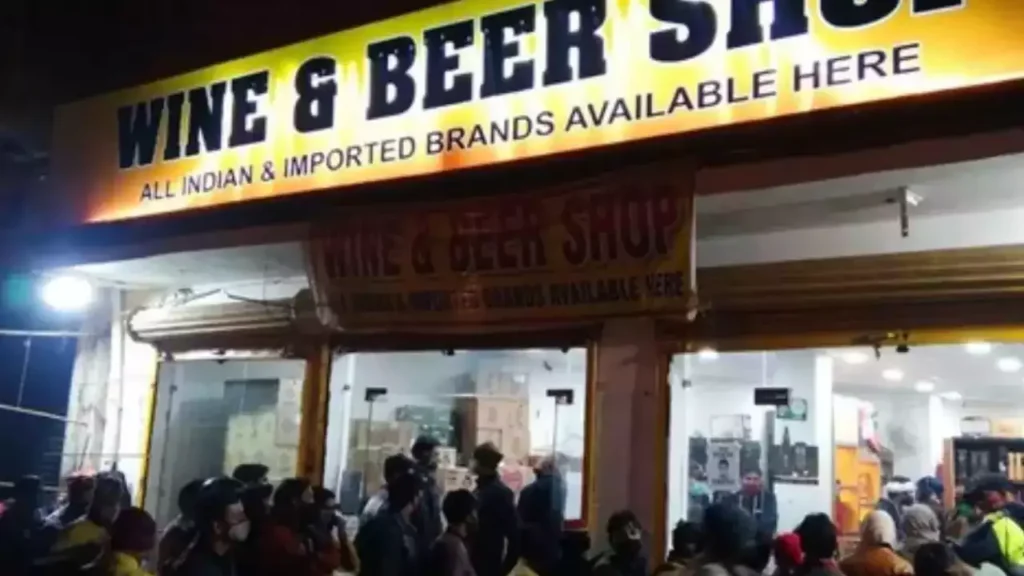
Comparison with Other States
Comparing Delhi’s dry day policies with those of neighboring states and other metropolitan cities helps contextualize the decision. Variations in regulations across the country and similar instances provide a broader perspective.
Government Measures
Analyzing the steps taken by the government to promote responsible drinking and initiatives aimed at reducing alcohol-related issues is crucial. Future plans for regulating liquor sales also play a role in shaping public perception.
| Government Measures | Description |
|---|---|
| Awareness Campaigns | Launching comprehensive campaigns to educate the public on responsible drinking practices, emphasizing the risks of alcohol abuse and promoting moderation. |
| Regulatory Reforms | Implementing or revising regulations to control the sale and distribution of alcohol, including stricter enforcement of legal drinking ages and licensing requirements for liquor establishments. |
| Community Engagement Programs | Initiating programs that encourage community involvement in addressing alcohol-related issues, fostering partnerships with local organizations, schools, and businesses. |
| Rehabilitation Initiatives | Investing in rehabilitation and counseling services for individuals struggling with alcohol addiction, emphasizing a holistic approach to address the root causes of alcohol abuse. |
| Law Enforcement Collaboration | Collaborating with law enforcement agencies to enhance monitoring and enforcement of alcohol-related laws, ensuring compliance with regulations during dry days and beyond. |
| Public Consultations | Conducting public consultations to gather feedback on liquor regulations, involving citizens in the decision-making process, and addressing concerns or suggestions for improvements in alcohol policies. |
| Youth Education Programs | Implementing educational programs in schools to raise awareness about the dangers of underage drinking, emphasizing the importance of making informed and responsible choices regarding alcohol. |
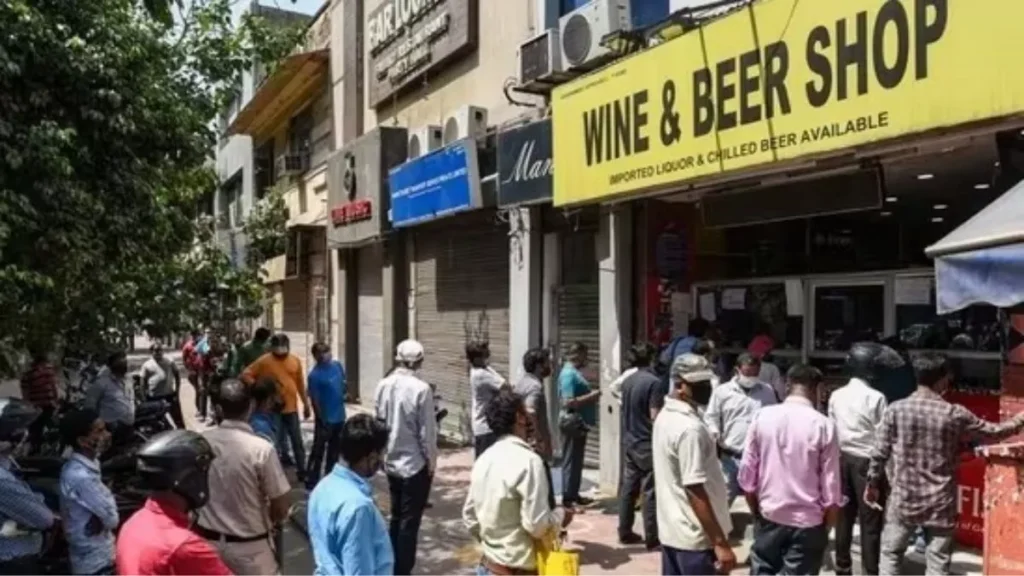
Economic Analysis
Assessing the economic impact on the liquor industry’s revenue and weighing the benefits of dry days against potential drawbacks contribute to a nuanced understanding of the situation. [Delhi Liquor Shops Closed on January 26]
| Economic Factors | Impact on Liquor Industry |
|---|---|
| Revenue Decline | Liquor sales are expected to decline during dry days, impacting the revenue of liquor businesses. |
| Shift in Consumer Behavior | Consumers may explore alternative options, affecting the purchasing patterns within the industry. |
| Business Adaptation | Some businesses may explore diversification or alternative revenue streams to mitigate losses. |
| Supply Chain Disruptions | The entire liquor supply chain may experience disruptions, influencing distributors and suppliers. |
| Economic Benefits of Dry Days | Dry days contribute to a reduction in alcohol-related issues, potentially resulting in long-term economic benefits for society. |
| Balancing Economic Interests | Striking a balance between economic interests and public welfare is crucial for sustainable liquor industry practices. |
Exploring government campaigns and the involvement of NGOs in promoting responsible drinking sheds light on successful strategies and challenges faced. This section showcases the collaborative efforts to address alcohol-related issues.
Challenges Faced by Authorities
Understanding the challenges faced by authorities in enforcing dry days and the strategies employed to address these issues is essential. Collaborations with law enforcement agencies play a crucial role in ensuring compliance.
Review of Previous Liquor Bans
A critical examination of past instances of liquor bans helps identify lessons learned and improvements made. Public reaction and compliance rates provide insights into the effectiveness of previous measures. [Delhi Liquor Shops Closed on January 26]
Future Perspectives
Predicting the continuation of dry days, potential changes in government policies, and anticipating public response and challenges form the crux of this section. What lies ahead for Delhi in terms of liquor regulations?
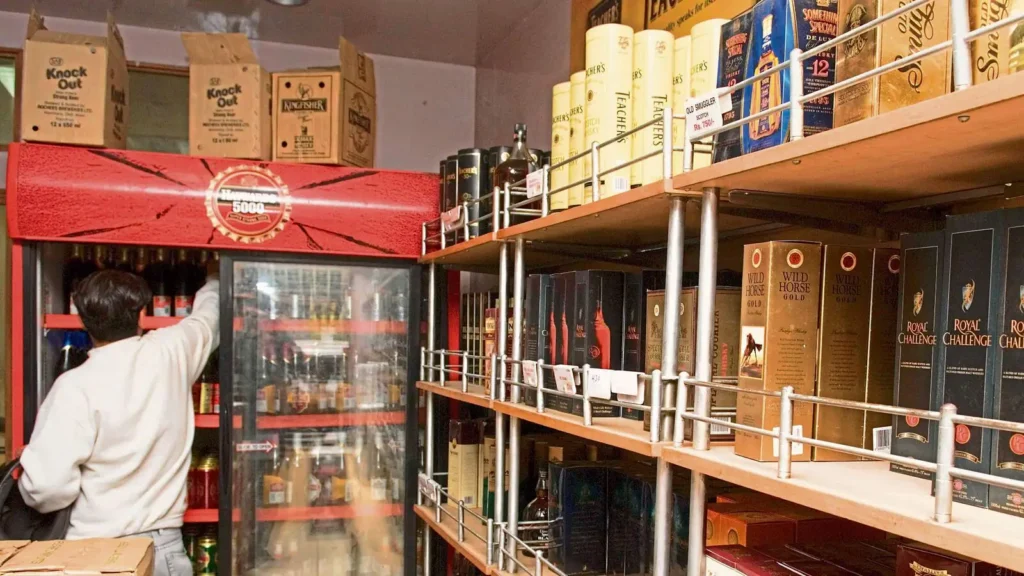
Conclusion
In conclusion, the decision to keep liquor shops closed on January 26 and the subsequent dry days until March 31 is a significant move by the Delhi government. It not only impacts businesses but also prompts a reevaluation of public drinking habits. As responsible citizens, adapting to these changes is crucial for the well-being of the community. [Delhi Liquor Shops Closed on January 26]
Frequently Asked Questions (FAQs)
- Are liquor shops closed only on January 26 in Delhi?
- The closure extends to a total of six dry days up to March 31, as per the government’s announcement. [Delhi Liquor Shops Closed on January 26]
- What alternatives do consumers have during these dry days?
- Consumers can explore neighboring areas with open liquor shops or plan their purchases ahead to ensure a steady supply.
- What legal consequences could one face for violating dry day regulations?
- Violating dry day regulations can result in penalties as per Delhi’s liquor laws. It is essential to be aware of and adhere to these regulations.
- How are businesses coping with the economic impact of liquor shop closures?
- Liquor store owners and businesses in the hospitality sector are facing challenges, and some may explore alternative revenue streams during dry days. [Delhi Liquor Shops Closed on January 26]
- Is there a possibility of the government revising its decision on liquor shop closures?
- While future policy changes are uncertain, staying informed about government announcements is advisable for residents and businesses.
Whisky & Rum Lovers Also Read:
- ‘Taylor Swift ko bulao na’: Anant Ambani and Radhika Merchant wedding the internet advises calling Taylor Swift following reports of Drake, Adele, and Lana Del Rey’s performance.
- Netizens appear Vicky Kaushal and Katrina Kaif danced to the song Tauba Tauba by Bad Newz
- Anant Ambani and Radhika Merchant Wedding: Nita and Mukesh Ambani give cash, gold, and silver to fifty couples at the large-scale wedding; REPORT
- Kajal Aggarwal is enjoying her best friend wedding in an exotic setting, Gautam Kitchlu’s passionate forehead kiss is the highlight of the event.
- Watch as Sonakshi Sinha and Zaheer Iqbal, newlyweds, take selfies and enjoy “beautiful sunsets” while spending time by the pool.
